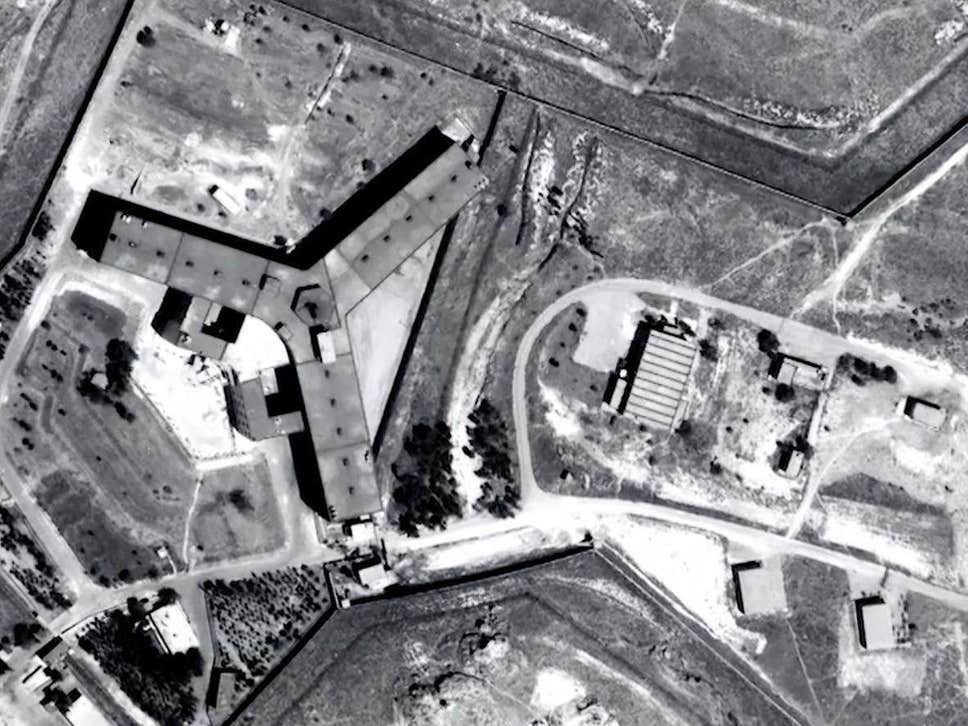الحكومة السورية مسؤولة عن معظم حالات المفقودين
10 / آب / أغسطس / 2019

ترجمة: مع العدالة
نشرت صحيفة “الإندبندنت-The Independent” البريطانية تقريراً حول المغيبين قسراً والمفقودين منذ بداية الحرب في سورية، وذلك وفق إحصائية للأمم المتحدة أشارت إلى أنّ أكثر من 100 ألف شخص يعتقد أنهم اختطفوا أو تم اختفاؤهم أو اعتقالهم خلال الحرب الدائرة منذ ثماني سنوات.
وفي حين يصعب التحقق من العدد الحقيقي بسبب عدم إمكانية الوصول إلى مواقع الاحتجاز، قالت “روزماري ديكارلو“، المديرة السياسية للأمم المتحدة، إن هذا الرقم يأتي من أبحاث أجرتها وكالات الأمم المتحدة وجماعات حقوق الإنسان.
وقالت السيدة “ديكارلو”، في كلمتها أمام مجلس الأمن يوم الأربعاء، إن الحكومة السورية مسؤولة عن غالبية الحالات، وإن العديد من السوريين اختفوا في السجون ولم يسمع عنهم مرة أخرى.
وقالت خلال اجتماع حول المفقودين في النزاع”إن حالات الوفاة أثناء الاعتقال لمّا تزل تحدث، ويُزعم أن الكثير منها كان نتيجة للتعذيب أو الإهمال أو الظروف الإنسانية”.
وأضافت أن جماعات المعارضة المسلحة قامت أيضاً بالاحتجاز التعسفي والتعذيب واختطاف المدنيين في المناطق الخاضعة لسيطرتها، ودعت إلى “ضمان العدالة والمساءلة” عن الانتهاكات “بغض النظر عن مرتكبيها”.
وبحسب التقرير أنه منذ بداية الحرب في سورية، قام نظام “بشار الأسد” باعتقال عشرات الآلاف من السوريين المعارضين لحكمه. واتُهم العديد منهم بالانضمام إلى الجماعات الإرهابية أو المعارضة المسلحة، بينما كان معظمهم مجرد نشطاء شاركوا في الاحتجاجات.
- تستمر الاعتقالات حتى يومنا هذا؛ حيث قال المرصد السوري لحقوق الإنسان في حزيران/يونيو إن آلاف السوريين اعتقلوا تعسفاً خلال العام الماضي، في الوقت الذي تسعى فيه (حكومة النظام) إلى إعادة بسط سيطرتها على مناطق البلاد التي تم الاستيلاء عليها من قبل المعارضة.
بعد هزيمة قوات المعارضة في معظم أنحاء البلاد، أوائل عام 2018، حولت (الدولة السورية) اهتمامها إلى القضاء على أي تهديدات متصورة لحكم (الأسد).
وقد تم اعتقال أكثر من 3600 شخص بين نيسان/ أبريل 2018 وحزيران /يونيو 2019، وفقاً للمرصد، وهو “مراقب حرب” مقره في المملكة المتحدة. وأضاف أن عدداً غير محدد من النساء والأطفال من بينهم .
وبينما أُطلق سراح بعضهم بعد استجوابهم، لم يزل 2400 منهم قيد الاحتجاز في سجون النظام السوري سيئة السمعة؛ وكثيرون ممن يدخلون السجون في سورية لا يبقون أحياء.
وتصف منظمة العفو الدولية سجن صيدنايا، وهو سجن عسكري كبير في ضواحي دمشق، بأنه مكان “يُنفذ فيه “القتل والتعذيب والاختفاء القسري والإبادة” منذ سنوات “كجزء من إجرام منهجي على المدنيين”. وتقدر مجموعة حقوق الإنسان أن ما بين 5000 و13000 شخص أُعدموا خارج نطاق القضاء هناك في الفترة ما بين أيلول/ سبتمبر 2011 وكانون الأول/ ديسمبر 2015 وحدهما.
وبحسب السيدة “ديكارلو” أن الجماعات المسلحة المعارضة لحكم (الأسد) مذنبة أيضاً بالاعتقال التعسفي والجرائم المرتكبة ضد السجناء، حيث ألقت القبض على المتعاونين والجنود الحكوميين وقامت بإعدامهم في بعض الأحيان.
وأضافت أن (قوات سوريا الديمقراطية) المدعومة من الولايات المتحدة قامت أيضاً بمثل هذه الاعتقالات، بما في ذلك اعتقال الرجال الذين يحاولون التهرب من التجنيد الإجباري.
- وكان اجتماع مجلس الأمن يوم الأربعاء فرصة نادرة للأسر التي اختفى أحباؤها قسراً لمناشدة القوى العالمية مباشرة.
وجاء في التقرير أن “أمينة خولاني”، المؤسسة المشاركة لـ “الأسر من أجل الحرية”، قالت للمجلس إن (الحكومة السورية) اعتقلتها هي وزوجها بتهمة “النشاط السلمي”، لمدة ستة أشهر وسنتين ونصف السنة على التوالي.
وقالت: “كنا محظوظين للبقاء على قيد الحياة، لكن الكثير لم يحالفهم الحظ”، موضحة أن اثنين من أفراد أسرتها حُكم عليهما بالإعدام عام 2013، “في نفس اليوم ونفس اللحظة”.
وحثت المجلس على إصدار قرار للضغط على (الحكومة السورية) وجميع الأطراف المتحاربة للإفراج على الفور عن قائمة المعتقلين، “لوقف التعذيب وسوء المعاملة على الفور”، وفي حالة الوفاة، يجب تقديم تقرير عن أسباب الموت الحقيقية وموقع الدفن للعائلات.
وأضافت “خولاني” أن مجلس الأمن الدولي التابع للأمم المتحدة فشل تماماً في ملف المعتقلين السوريين وأسرهم “؛ والمسؤولية تقع على عاتقكم في حماية السوريين من نظام يقتل ويعذب ويعتقل المواطنين بشكل غير قانوني، وذلك انتهاك منهجي للقانون الدولي”.
أما عن الجانب الروسي، وهو أقرب حليف للأسد، فقد رفض الممثل الروسي في مجلس الأمن”ديمتري بوليانسكي” الاتهامات الموجهة إلى (الحكومة السورية).
واصفاً أن الــ”بيانات غير مؤكدة وغير موضوعية للغاية فيما يتعلق بالوضع في سوريا”، وانتقد الدول الغربية التي دعت إلى عقد الاجتماع لعدم تقديم أي معلومات عن المفقودين والمحتجزين في المناطق التي تسيطر عليها المعارضة.
وقال “بوليانسكي” لقد أعلنا مراراً وتكراراً أنه من غير المقبول تسييس القضايا الإنسانية وقضايا حقوق الإنسان. وأضاف “لكننا نسمع مرة أخرى اتهامات ضد السلطات الرسمية في دمشق، بينما يتم تقديم الإرهابيين كضحايا أبرياء “.

 Eng
Eng